Typed up: on the bus from Dar es Salaam to Arusha, at Sakina Campsite in Arusha Posted from: Cybernet Internet Cafe in Arusha
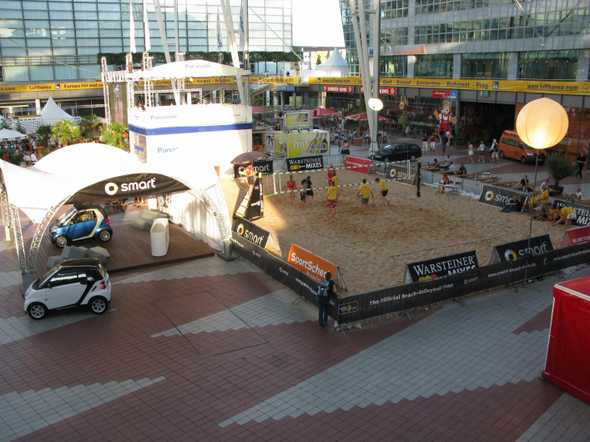
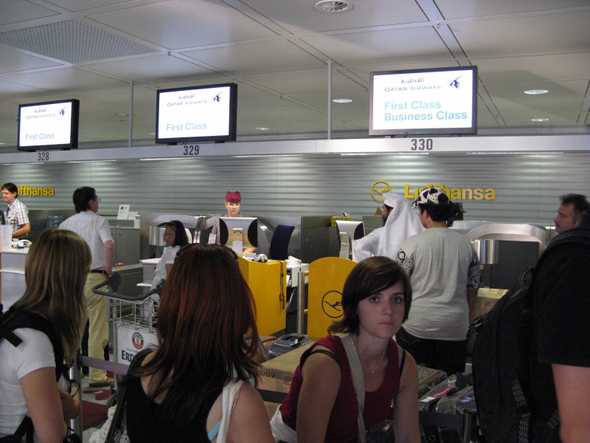
Since we had been up all day in Munich (where it was pretty hot), we were feeling pretty stinky. So we spent some euros on baby wipes and freshened up. I even washed the shirt I was wearing, and with fancy quick dry fabric it was all dry (except for the collar) by the time we got on the airplane a few hours later. We also used this time to acquire two \$50 bills, which the guidebook says we would need for Tanzanian visas.
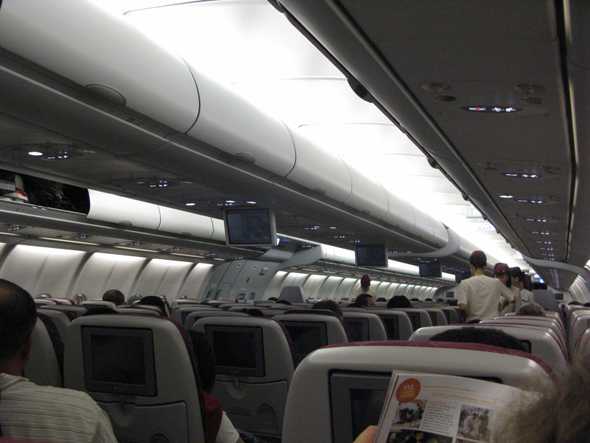
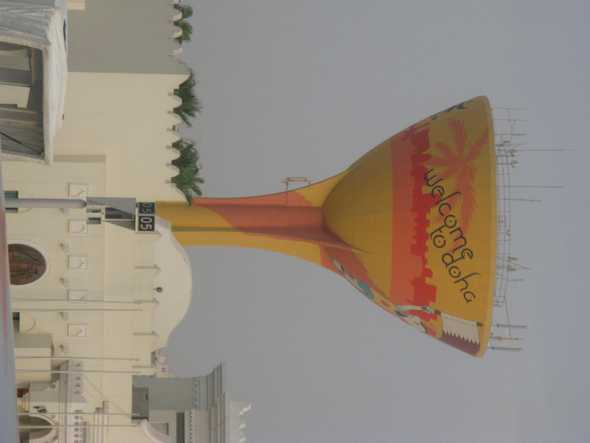
From Doha we flew into Dar Es Salaam. Herberth, who sat next to us on the plane, taught us a little bit more Swahili. The sounds are very foreign which makes it hard to remember words, but the pronunciation is fairly straightforward. And as always, I don’t spend enough time studying. Anyway, we landed in Dar and took a bus to the main terminal. To our surprise it didn’t feel very hot, just warm and a bit humid.
At the terminal we filled out Visa papers, and then made the unhappy discovery that the visa for US citizens costs \$100 and not \$50. All we had is \$100 and some euros. We explained this to the immigration officer, and it was no problem. She called somebody over to escort me to the money changing place in “real” Tanzania. I changed my euros, and everything is fine. (We do actually have some emergency money hidden in various places, but I hope never to have to use that.) On the form we just said that we’re planning to travel to Malawi by train/bus, and nobody complained about lack of onward travel plans. As expected, Tanzania is happy to have rich American tourists come visit them.
Once we picked up our luggage we went in search of an ATM, because we have just a few shillings which might not be enough for a cab right. The ATM outside the airport was broken, though. We looked for another one, and ran into a taxi driver who said he’d help us. This reeked of rip off, but we were tired and went along with it. His car was parked in the official taxis-only section of the car park, so we assumed it was safe.
He drove us to an ATM at a nearby gas station, where my card didn’t work but Danielle’s did. Afterwards he drove us to the hotel, and we paid 27,000 shillings (\$25) for the privilege. Apparently the going rate after you haggle a little is more like 10k. Driving through Dar, it was clear the people here are poor. There are lots of shacks, and lots of people on the street. Traffic is relatively light. There are quite a few very full carts that are pushed by one or two people. Lots of people carry stuff on their heads. It is hard to describe the scene, since everything is so different from what we’re used to at home.
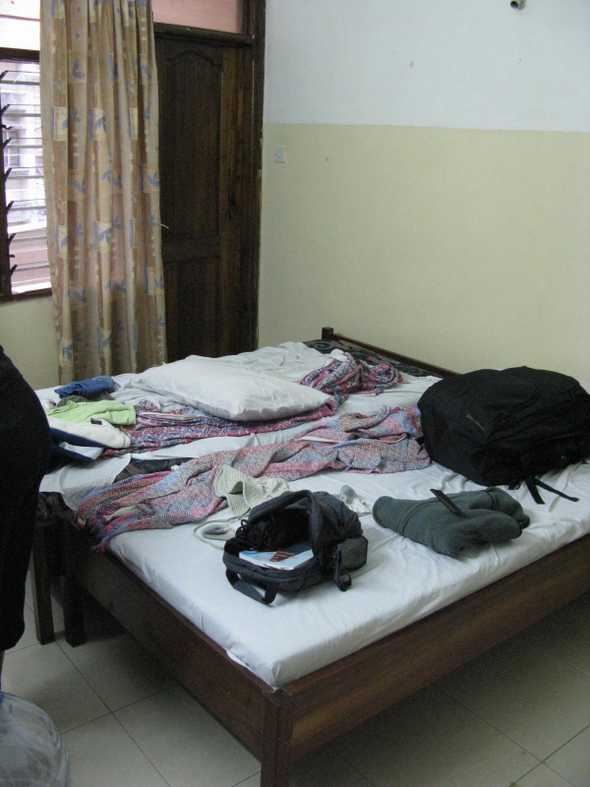

For dinner we went to Chef’s, a restaurant mentioned in the guide book. It was pretty busy, reasonably priced, and the food was decent. We did not eat anything too exotic, but my chicken masala did have chicken parts in them that you wouldn’t usually find in such a dish in the US.
The next day was a day for errands. First on the list was to buy bus tickets that would take us to Arusha. We took a cab to the Scandinavian bus terminal, where you can buy tickets for the “fancy” bus. Fancy means it has air conditioning, and there’s one ticket sold per seat. Luckily the bus was not full, and buying tickets was easy. The cab waited for us and we returned to the hotel, and he also offered to drive us again to make it to the bus the following morning. (Another thing the guidebook says is not to take just any cab. Ask your hotel to arrange one; which we did, so the porter’s friend was our cabbie.) I think we only over-paid a little bit for this cab ride.
Next we went to organize a place to stay for the night in Arusha. We decided to call some places, which entailed going to the post office to buy a phone card. We must have tried at least half an hour to make a call using that card, and we had help from a few people, but we were unsuccessful. We decided to ask our hotel concierge because their English is better. They also didn’t know how to make it work, despite some help from friendly strangers there as well. They did let us make a call from their office phone. We called a hotel that was sadly full for the night. We didn’t want to impose anymore, so we went to an Internet cafe associated with a different hotel in Dar es Salaam. There it was no problem to plug my laptop into an Ethernet cable. Internet was quite intermittent and slow, though. However, we managed to make a reservation through hostelz with Sakina Campsite.
We declared victory and had lunch at a Chinese restaurant we passed. The food was very nice. Afterwards we bought some oranges and small bananas from a street vendor so we would have something to eat on the 10-hour bus ride tomorrow. Our final chores were to buy a nice blanket and a mosquito net for our safari. However, the hotel staff informed us that on Saturday afternoon all the stores were closed. We were very concerned about not having a mosquito net, but all we could think to do was to e-mail our safari company and ask them if they could help us get one. Internet was down, but after about 10 minutes of waiting it came back.
After another nap, we returned to the Chinese place for dinner. It got dark while we were there, and inside we strategized on how to get back to our hotel. Taking a cab seemed excessive because it’s only a couple of blocks, plus the book says not to take a random cab. But it also says not to walk around at night. In the end we decided that walking would be fine. We stuck to the busy streets, and felt perfectly safe.
Still, we were both feeling very overwhelmed on our second day in Africa. For me the constant worry about security was really draining. On top of that we also had to think about water (since you cannot drink the tap water here), deal with most people speaking a foreign language (although almost everybody can speak passable English). And we were still tired from the red-eye flight.
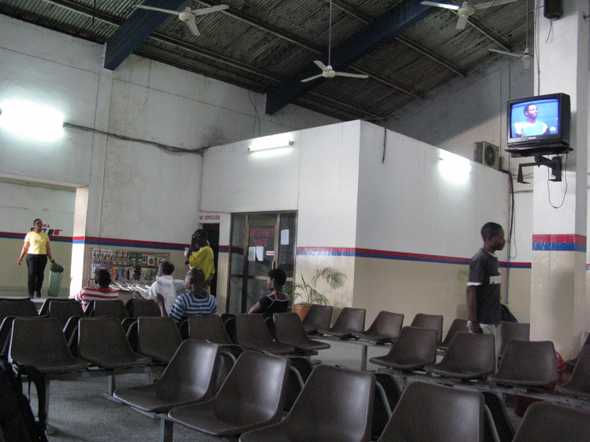
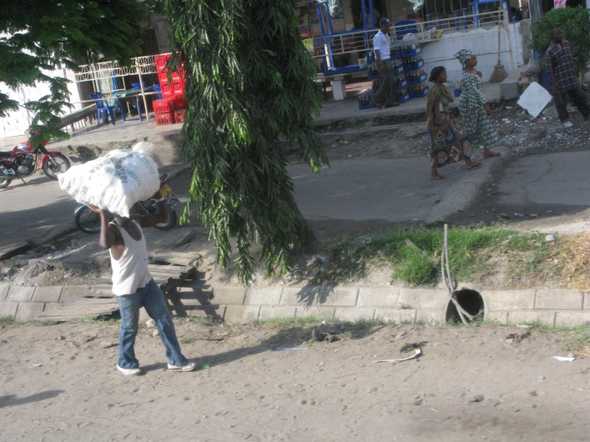
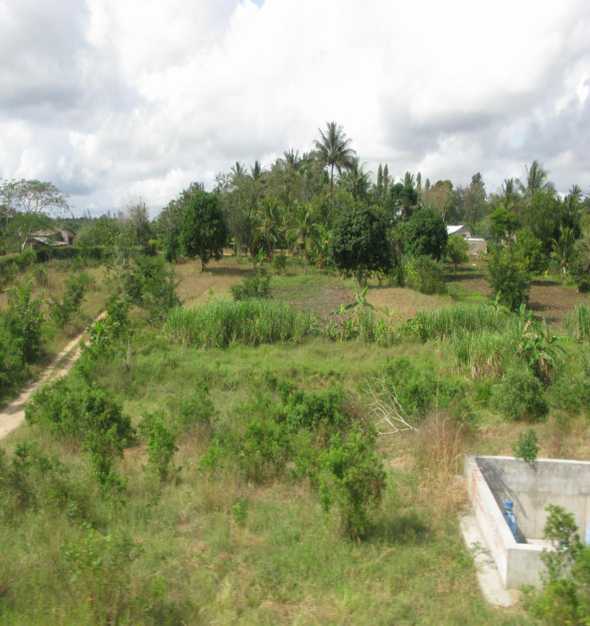
Then the bus broke down.
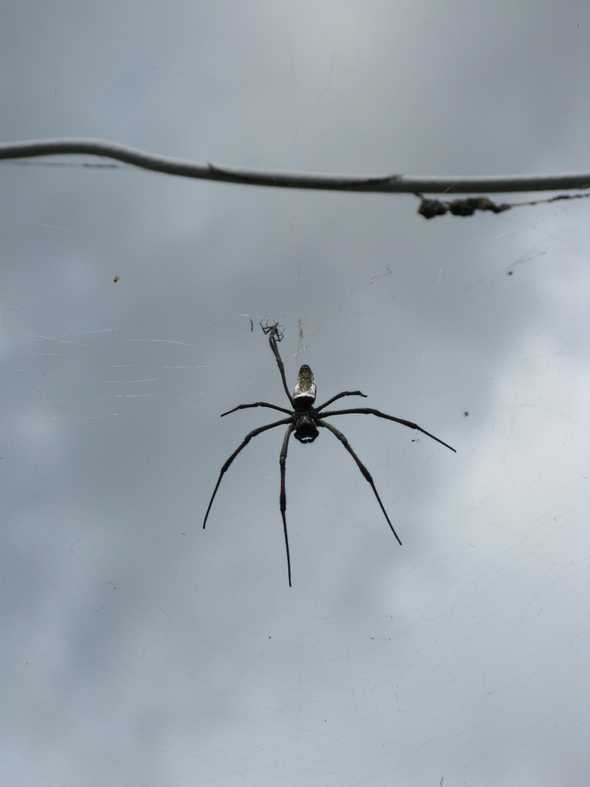
Anyway, we ate and drank some at the adjoining restaurant. Our waiter was Chevi (Chebi?) who also owns the place. He was very friendly, taught us some more Swahili, and served up some really excellent lemonade. He called it lemon juice, but it was nice and tart. Much better than the sweet stuff we get at home. To pass the time, I also played a bit of harmonica for the first time in a while. Nobody told me to be quiet so it must have been alright, and it was quite fun.
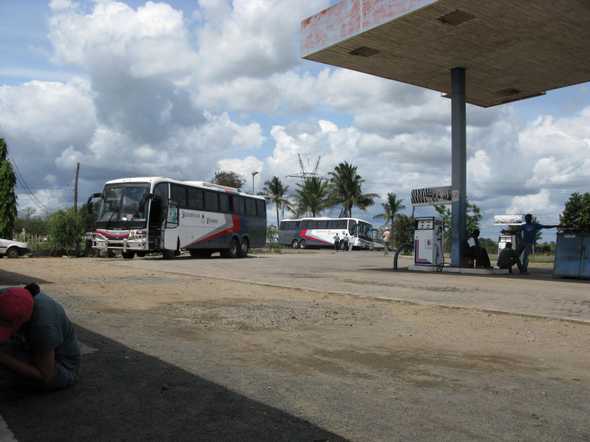
The in-bus movies were Ong Bak, and a drama in Swahili about a pastor who is possessed, and somehow black magic came into it too. While on the bus we met several people. The first was Josh, who sat behind us and is travelling from England. At the same time we met Sheila, who sat next to Josh and spends a lot of time in Africa. She answered some questions about local customs, especially related to money. It seems Josh paid even more than we did for the cab from the airport, and Sheila told us firmly to never get in a cab without establishing a price first. She asked us what we’d paid for several things, and told us to haggle for just about everything. She had stayed at the Econolodge as well, and showed us a receipt where she paid much less than the posted rate. The lady who was sitting next to Danielle was Nema, who we also talked to a little bit.
Sakina Camp is a way outside of the center of Arusha, and as it was getting later, we were trying to figure out how to get there. Arusha is as dangerous or more so than Dar, so we wanted to make sure to have a plan as soon as we got off the bus. We borrowed Nema’s cell phone to try and call Sakina, but for some reason the call did not go through. Not knowing the local area, we decided to just go to the hotel that Josh had a reservation at, and see what happened. That hotel looked really close to the bus station on the map, so getting there didn’t seem so daunting. Clive didn’t have a place to stay either, so he planned to do the same.
Around 12:30am we arrived at the bus stop in Arusha. Nema organized for a cab for the 4 of us to follow her car (which was full). She also negotiated a locals-price for the service. I think the cabbie didn’t like that, because instead of following Nema’s car he just took off and raced to the designated hotel. At the hotel, after some confusion with the receptionist, Clive got a private room while Danielle and I got a double, and Josh got the private room he had booked. During the check-in process Nema’s brother stopped by to make sure everything was OK. Tanzanian people are very friendly.
That’s how we ended up at the Arusha Crown Hotel, which is certainly out of our budget (\$75 for the night), but was worth it for the safety and peace of mind. The stairway had cool ironwork and the railing was made out of very nice wood. We had a private bathroom with a clean, western toilet (with tp), and even a TV in our room. The beds were good, but neither of us slept very well. There was just too much going through our minds.